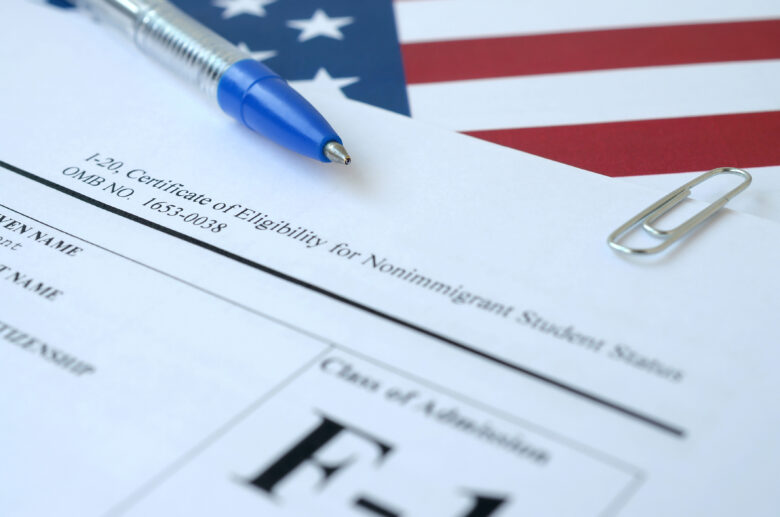Who Qualifies for Naturalization Test Exemptions? A Guide to Eligibility
Naturalization is the process by which immigrants become U.S. citizens, which often involves demonstrating basic English proficiency and knowledge of U.S. history and government. These requirements are assessed through the English and civics tests administered during the naturalization process. While these tests are standard, there are specific exemptions available to applicants who meet certain criteria. These exemptions are designed to accommodate individuals whose age, physical or developmental disabilities, or medical conditions make it challenging to fulfill these requirements.
Understanding who qualifies for these exemptions for applicants who may face barriers to completing the tests is important before beginning your journey. Let’s review the different types of exemptions, eligibility criteria, and steps to apply for these accommodations with the support of a citizenship immigration lawyer.
Exemptions to the English and Civics Tests
To become a U.S. citizen through naturalization, applicants are typically required to demonstrate their ability to read, write, speak, and understand basic English. They must also show knowledge of the U.S. government and history through the civics test. However, federal law allows exemptions for certain individuals whose circumstances make it unreasonable to meet these requirements.
These exemptions fall into two broad categories: those related to age and length of residency, and those tied to physical or mental conditions. Both categories aim to ensure that individuals are not unfairly disadvantaged in their pursuit of U.S. citizenship.
English Test Exemptions For Naturalization
The English test evaluates an applicant’s ability to understand and communicate in English. Some individuals, however, may be exempt from this requirement based on their age, residency, or medical conditions.
Age and Residency-Based Exemption
Applicants aged 50 or older who have lived as lawful permanent residents (green card holders) in the United States for at least 20 years, or those aged 55 or older with at least 15 years of permanent residency, may qualify for an exemption from the English test. These individuals are still required to take the civics test but may do so in their native language if they bring an interpreter to the interview.
Medical Exemption
Individuals with physical or developmental disabilities or mental impairments that prevent them from learning or demonstrating English proficiency, or knowledge of U.S. history and government, may be eligible for an exemption. To apply for this exemption, applicants must submit Form N-648, Medical Certification for Disability Exceptions, completed by a licensed medical professional. Additionally, to request medical exemption the condition must have lasted for 12 months or longer. This form should detail the applicant’s condition and explain how it impacts their ability to meet the language and test requirements.
Civics Test Exemptions For Naturalization
The civics test assesses an applicant’s knowledge of U.S. history and government. While most applicants must pass this test, exemptions are available under certain circumstances.
Age and Residency-Based Exemption
Similar to the English test, applicants who qualify under the age and residency criteria (50/20 or 55/15 rule) can take the civics test in their native language with the help of an interpreter. Additionally, applicants aged 65 or older with at least 20 years of permanent residency are eligible to take a simplified version of the civics test, which includes fewer questions.
How to Apply for Test Exemptions
Applying for a naturalization test exemption involves careful preparation and documentation. For age and residency-based exemptions, applicants simply need to indicate their eligibility on Form N-400, Application for Naturalization. If an applicant is applying for a medical exemption, they must submit Form N-648 along with Form N-400.
It is essential to ensure that all forms are accurately completed and supported by sufficient evidence, such as medical records or documentation of residency history. Mistakes or omissions can delay the application process or result in denial of the exemption.
Understanding the Role of Form N-648 in Medical Exemptions
One critical aspect of applying for medical exemptions to the English or civics test is the proper completion of Form N-648, Medical Certification for Disability Exceptions. This document plays a pivotal role in determining whether USCIS will grant an exemption based on an applicant’s physical, developmental, or mental condition. Understanding the purpose, requirements, and submission process for Form N-648 is essential for anyone seeking a medical exemption.
Purpose of Form N-648
Form N-648 is used to provide detailed medical evidence that an applicant’s condition prevents them from fulfilling the testing requirements for naturalization. It is designed to confirm that the applicant cannot learn English or retain knowledge of U.S. civics due to a diagnosed medical condition. The form must be completed by a licensed medical professional, such as a doctor, psychologist, or clinical social worker.
Requirements for Form N-648
For Form N-648 to be accepted by USCIS, it must include comprehensive and specific information about the applicant’s condition. The form must clearly explain:
- The medical diagnosis and how it aligns with recognized medical standards.
- The severity and duration of the condition.
- How the condition directly impacts the applicant’s ability to meet the English and/or civics requirements.
The form should avoid vague or generalized statements and instead provide evidence-backed details. USCIS scrutinizes these forms closely, so ensuring accuracy and thoroughness is critical.
Common Mistakes and How to Avoid Them
Incomplete or incorrectly filled forms are a leading cause of delays and denials for medical exemptions. Some common mistakes include:
- Providing insufficient medical evidence or failing to explain how the condition affects the applicant’s abilities.
- Using medical jargon without offering clear explanations for USCIS officers who may not have medical expertise.
- Failing to sign or date the form properly, either by the applicant or the medical professional.
Applicants should review the form carefully with their medical professional and consider consulting an immigration attorney to ensure all requirements are met.
Contact Cambridge Immigration Law to Speak with an Immigration Lawyer for Citizenship
Going through the naturalization process and understanding eligibility for test exemptions can be lengthy, and complicated. If you believe you qualify for an exemption or need assistance with your citizenship application, Cambridge Immigration Law is here to help. Our immigration attorneys for citizenship specialize in citizenship and naturalization cases to make sure that your application is completed accurately. Contact us for personalized guidance from a skilled citizenship immigration lawyer.













